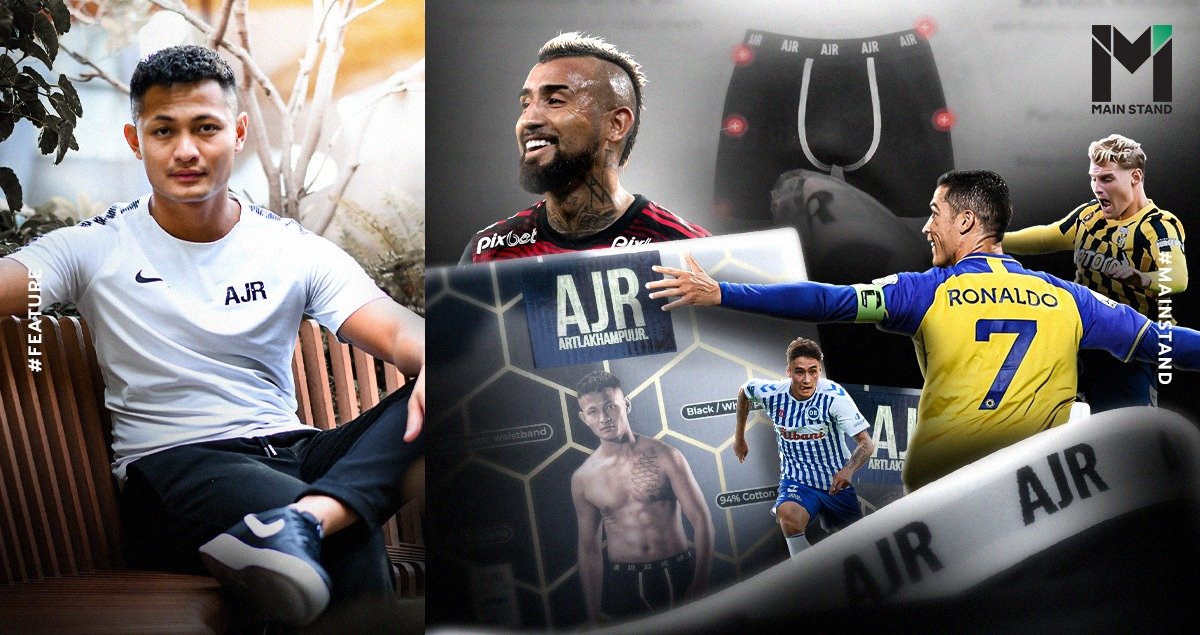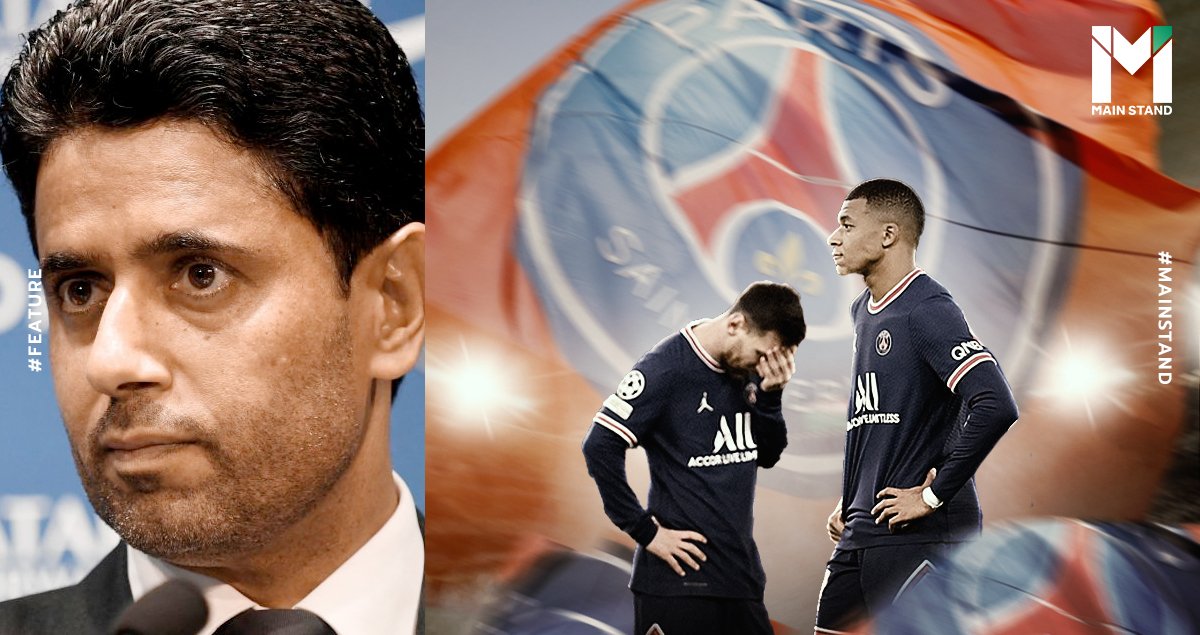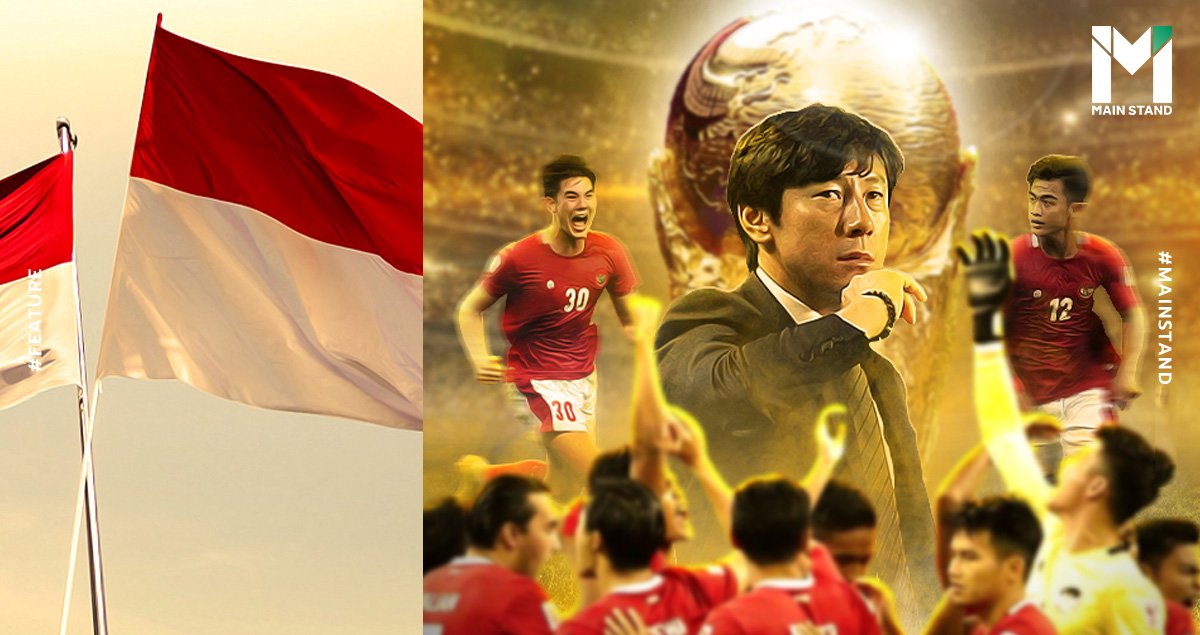
Home to 273.5 million people and a vast number of immensely passionate football fans, Indonesia is strangely overlooked in discussion of ‘sleeping giants’ in the international football. Situated in Southeast Asia, arguably the ‘final frontier’ of football development, the nation possesses the potential to be a continental powerhouse.
Derbies between its biggest clubs draw almost unimaginable crowds in the rest of the region, with stories of their legendary impassioned rivalries attracting observers from across the planet.
Rather than soaring above the rest of their neighbors, the Garuda have been mired in off-field trouble for most of the last decade, greatly hampering their ability to compete at the highest level. However, signs of change are on the horizon - with an exciting young crop of players and an accomplished head coach at the helm, Indonesia could be on the cusp of making a major splash in Asian football.
What exactly has Indonesian football been through? How have the players and coaches been able to restore hope to the passionate local fanbase? And just what is possible for this exciting young team? Follow along as Main Stand’s freelance writer Gian Chansrichawla reflects on the past, present and future of this exciting Indonesia team.
The political game
Unlike most nations in Southeast Asia, some of Indonesia’s football clubs have been around for almost a century. Clubs such as Persib Bandung, Persija Jakarta and PSM Makassar have been around in some form or another since the 1920s, and remain household names in Indonesian football today. The Indonesian Football Association (PSSI) was formed back in 1930, and the nation has even been to the World Cup even participated in the 1938 World Cup, though as a colony of the Netherlands.
However, its domestic league doesn’t have anywhere near the same longevity, as it has consistently suffered from inconsistency, dualism and political bickering.
The domestic football scene reached its lowest point back in 2011, when the PSSI was fraught with corruption scandals and threatened with the prospect of a breakaway league. Their newly minted Indonesian Super League (ISL), formed in 2008, was under threat by an initiative to replace it with the ‘Indonesian Premier League’ (IPL), made up of clubs who were dissatisfied with the PSSI leadership. Notable clubs such as PSM Makassar and defected, while others such as Persija Jakarta and Persebaya Surabaya split into two in order to compete in both divisions.
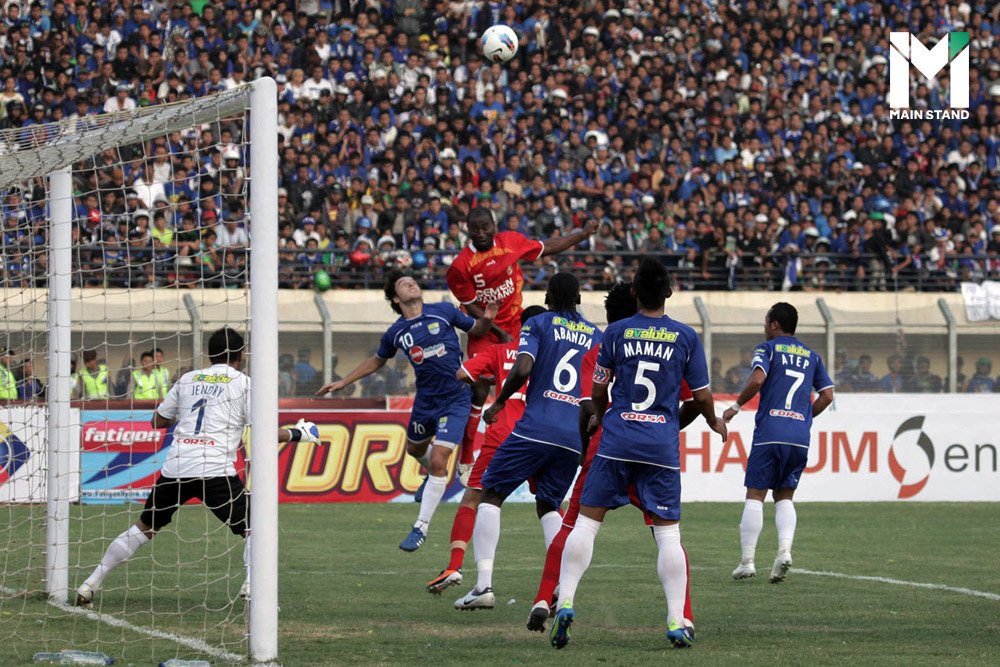
FIFA, world football’s governing body, said the breakaway league was evidence that the PSSI lacked control over Indonesian football, and that it’s leadership had “lost all credibility.” However, things were set to get considerably worse, as by 2015 the PSSI was officially suspended by the Indonesian government’s Ministry of Youth and Sports, after it failed to comply with three warning letters sent by the ministry. The move, which is nearly unprecedented in world football, violated FIFAs statutes on the independence of football authorities and led to Indonesia being banned from all FIFA competitions.
The Garuda were eliminated from the 2018 World Cup and 2019 AFC Asian Cup qualifying campaigns. Though the ban only stood for a single calendar year, it meant that Indonesia were not able to compete and test themselves competitively on the continent in a meaningful way for the next four years. Confined to regional football (with even that in doubt) Indonesia had to sit with their hands tied while some of their rivals were pushing themselves against the biggest teams in Asia. Without a consistent and reliable domestic scene to tide them over, the Garuda effectively lost a generation of talented players to this
False dawn
FIFA lifted Indonesia’s suspension in May 2016 at their annual congress in Mexico. They announced their return at the AFF Suzuki Cup at the end of the calendar year. Against the odds, the Garuda managed to make it to the competition's final before losing out to Thailand’s ‘Golden Generation’ as Kiatisuk Senamuang coached them to lift their second-consecutive title.
Despite not being able to lift their first regional title, the tournament felt like an exciting new beginning for the Indonesian side. The feeling was compounded when the PSSI appointed former Barcelona and Real Madrid midfielder Luis Milla as head coach of the senior and U23 national teams. Milla had recently coached La Liga outfit Real Zaragoza FC, and been involved with the Spanish national team setup at youth levels.
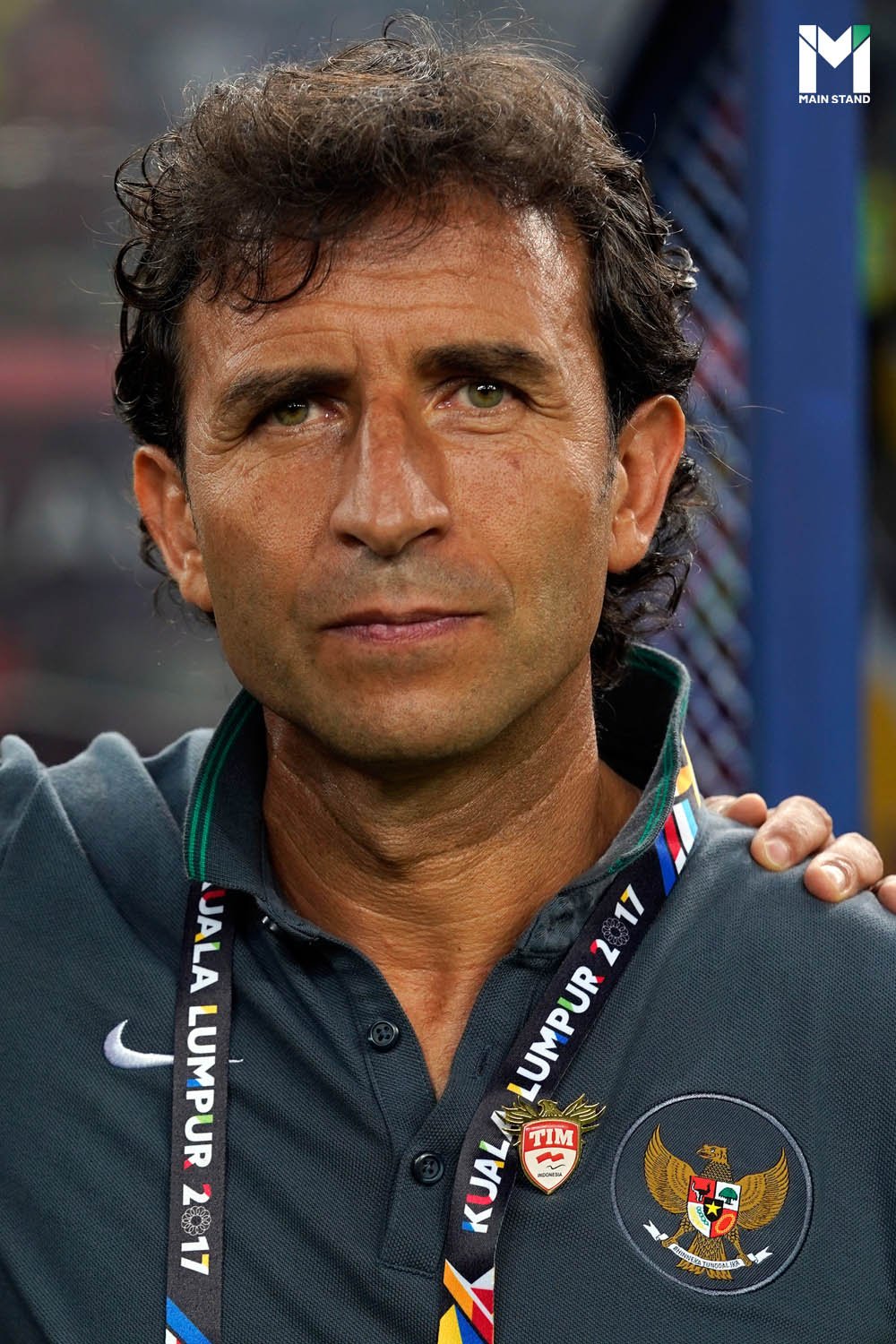
Unfortunately, it turned out to be a false dawn for the Garuda. Despite a promising start, which saw the U23 side win Bronze at the 2017 SEA Games. Milla fell significantly short of his predecessor Alfred Riedl and was out of contract after the 2018 Asian Games. Meanwhile, in the AFF Cup at the end of that year, Indonesia finished behind Thailand, the Philippines and Singapore in Group B and were sent home with only a solitary win over minnows Timor Leste.
Indonesia were forced to watch from the sidelines as their regional rivals Thailand, Vietnam and the Philippines made a splash at the 2019 AFC Asian Cup, with the former two even making the knockout stages.
PSSI turned their attention to the domestic game when seeking his replacement. Local coach Bima Sakti stepped in as caretaker following his departure before Simon McMenemy was appointed on a permanent basis due to his success in winning Liga 1 with rank outsiders Bhayangkara FC. His superior knowledge of the players and immersion in the Indonesian players made him a popular choice among supporters, and he was considered a shrewd choice to lead them upon their return to World Cup qualifying.
However, things didn’t go according to plan. Drawn into an ‘ASEAN Group of Death’ alongside Thailand, Vietnam, Malaysia and the UAE for World Cup Qualfying, McMenemy bought an unfit team to compete and lost every one of his four competitive matches in charge of the Garuda. By the time COVID-19 interrupted the competition, McMenemy had been sacked and the side sat on zero points with five games played, effectively rooting them to last place in the table. Indonesian football once again looked to be at its darkest hour.
A new hope
Shin Tae-Yong was unveiled on the 28th of December, 2019, as the new head coach of Indonesia’s senior, U23 and U19 national teams. The self-proclaimed ‘special one’ of Asia is a renowned figure in his homeland after he became the first man to win the AFC Champions League as both a player and manager back in 2010 with Seongnam Ilhwa Chunma. He went on to take charge of the South Korean national team, where he recorded a famous 2-0 victory over Germany at the 2018 World Cup.
For a football federation that has loved to flirt with big-name managers in the past, Shin’s appointment was a huge coup for the PSSI. A tactical nous and strict focus accompanied his international reputation on discipline which excited the Garuda supporters. The success of Shin’s compatriot Park Hang-Seo with Vietnam was also an encouraging sign.
However, the new boss would have to wait over a year before taking to the touchline with his new side. During that time, he clashed heads with the PSSI over their expectations, their lack of willingness to allow the team to train in South Korea and the overall state of football in the country.
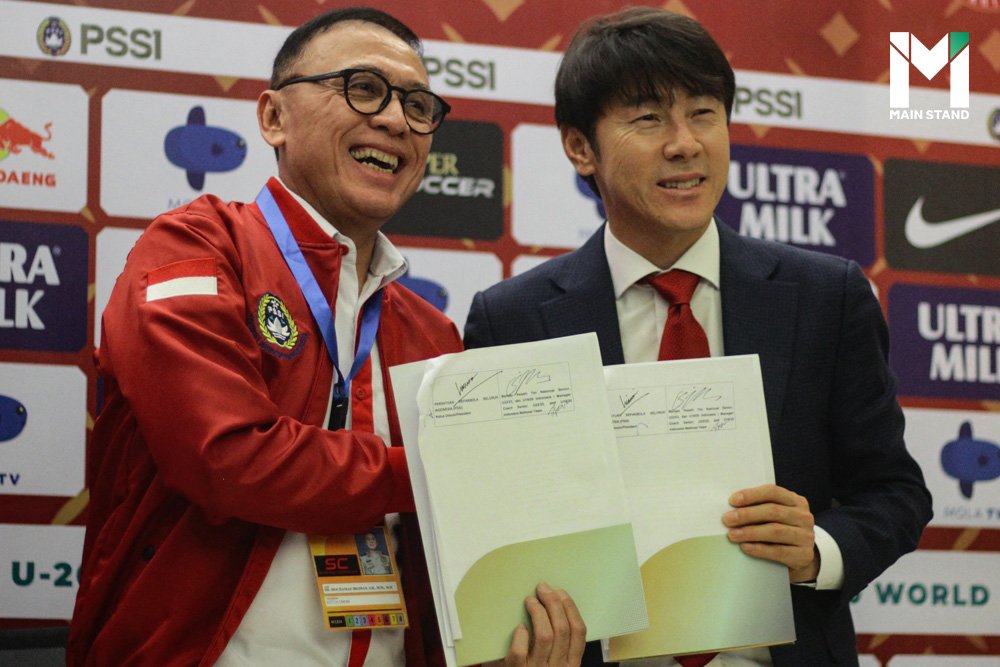
“I’m not a magician,” Shin told the media shortly after his arrival. “There must be a process if we want the Indonesia national team to succeed.”
Shin’s commitment to the ‘process’ was exemplified by his first year in charge, which was spent taking the U-19 team to international friendlies either side of the pandemic-induced lockdown. He carried that focus on youth into World Cup qualifying with the senior team, as he took a squad made up of almost entirely new faces to the ‘ASEAN group of death’ which resumed in the UAE.
Stunningly, eight of the starting eleven for Indonesia’s first game against Thailand had never played for the national team before the new boss’ appointment. Among them were promising young left-back Pratama Arhan, exciting attacker Witan Sulaeman, and defensive stalwart Rizky Ridho. They joined up with Asnawi Mangkualam and Egy Maulana Vikri, who had long since established themselves as some of the region's most promising players and had already tested their talents abroad in Korea and Poland, respectively.
They held Thailand to a 2-2 draw, with Asnawi and Egy the standout performers and Dimas and Widnanya on the scoresheet. Their subsequent defeats to Vietnam and the UAE did little to dampen their spirit, or the idea that something exciting was coming for the Garuda.
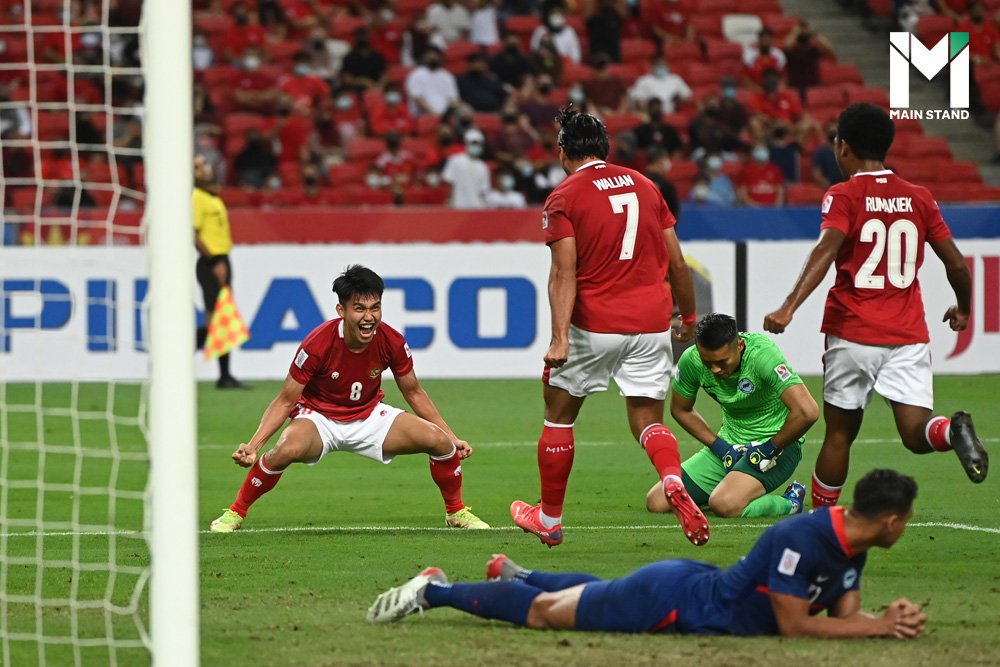
The talented young side then took their talents to the region's most exalted competition, the AFF Suzuki Cup, played out in Singapore at the end of 2021. Shin Tae-Yong’s side managed to top an incredibly competitive group featuring both Vietnam and Malaysia, with an exceptionally memorable 4-1 win over the latter in the final group match to secure their place on top of the standings.
They then went on to face Singapore in the semi-finals and emerged 5-3 aggregate winners after playing out the most enthralling match of the tournament in the second leg. Unfortunately, they again fell at the final hurdle with a 6-2 aggregate defeat to Thailand in the finals, but Shin Tae-Yong’s men had made a crucial statement. After their struggles of the past few seasons, the Garuda were back among the region's best and ready to push themselves to even greater heights.
Turning point 2023?
From the time of Shin’s appointment, the opportunity that 2023 presents the Indonesian national team would have been almost unimaginable. After missing out on the last Asian Cup through no fault of their own, the side managed to confidently progress through qualifying, beating out Kuwait and Nepal to progress from Group A along with Jordan. They find themselves alongside Thailand, Vietnam and Malaysia in the continent’s premier competition, which will be played out next summer.
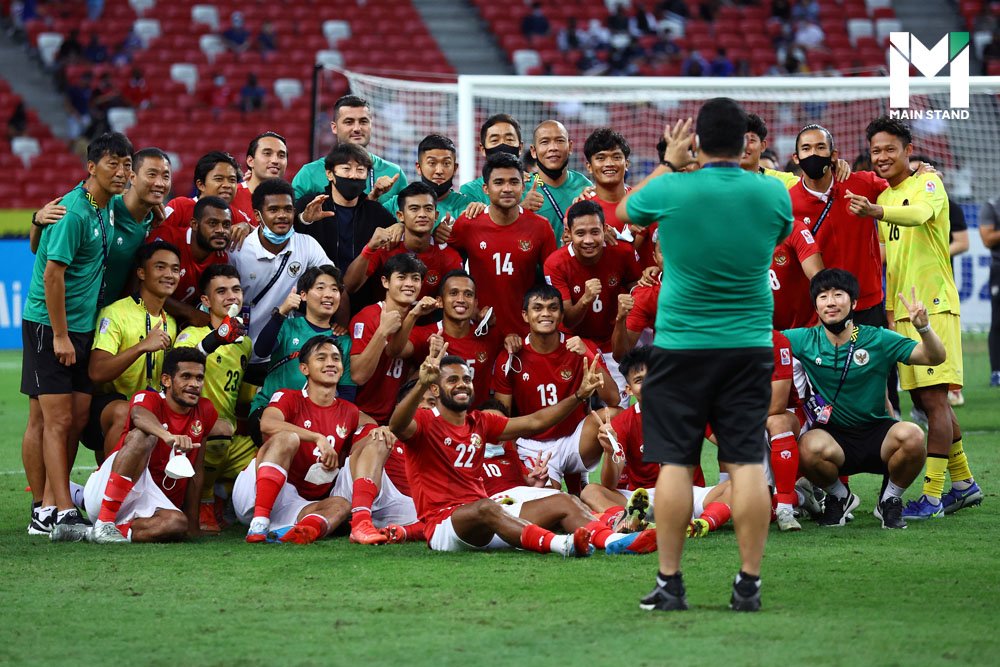
However, before that, the side will be given a historic opportunity when they host the FIFA U20 World Cup next May. This chance to compete on the world stage will be an invaluable experience of Indonesia’s budding youngsters; something that previous generations have sorely missed in their quest for success. It can also potentially put some of the side’s most talented players in the ‘shop window’ for clubs all across the planet, opening doors for them to test themselves in stronger leagues.
Indonesia's turnaround in recent years has been nothing short of astounding for a national team staring down the barrel of potentially its darkest hour just a few years ago. This promising generation of young players and their brilliantly astute coach has overcome a slate of adversities and now finally stand on the cusp of fulfilling their potential. That same resilience and fighting spirit will serve them well next year when the Garuda can finally soar out of the doldrums and announce themselves to the world.
Sources:
https://www.transfermarkt.com/indonesien/legionaere/verein/13958
https://en.wikipedia.org/wiki/Indonesia_national_football_team#2012_and_2015%E2%80%9316_suspensions
https://www.google.com/url?q=https://www.reuters.com/article/soccer-asia-final-idUKTOE6AC02720101113&sa=D&source=docs&ust=1658055298408245&usg=AOvVaw18UzY1NiuJIoBoxsaUPBBl




